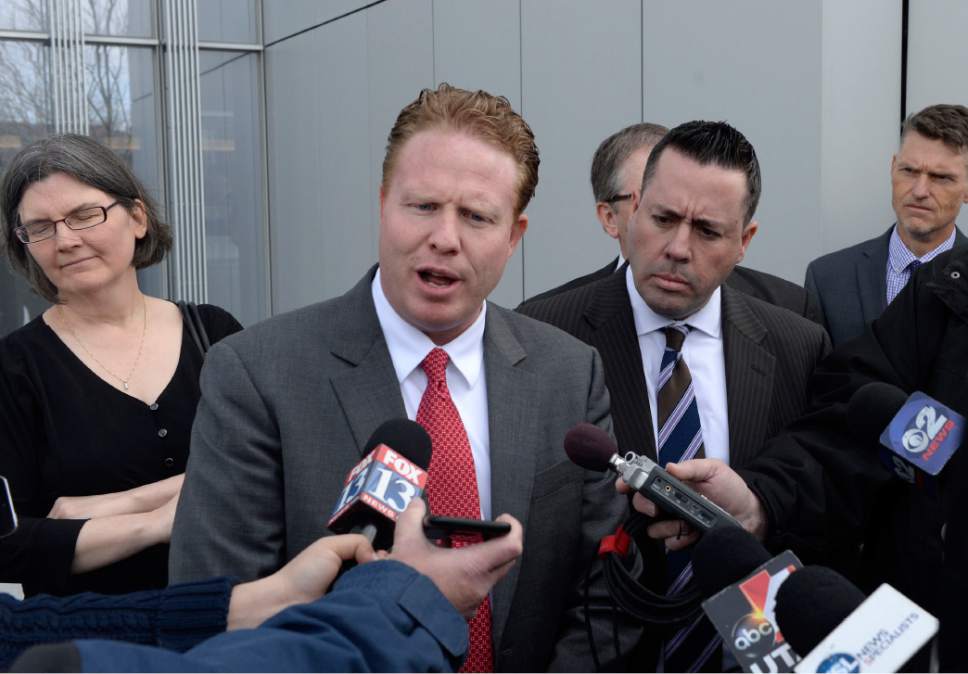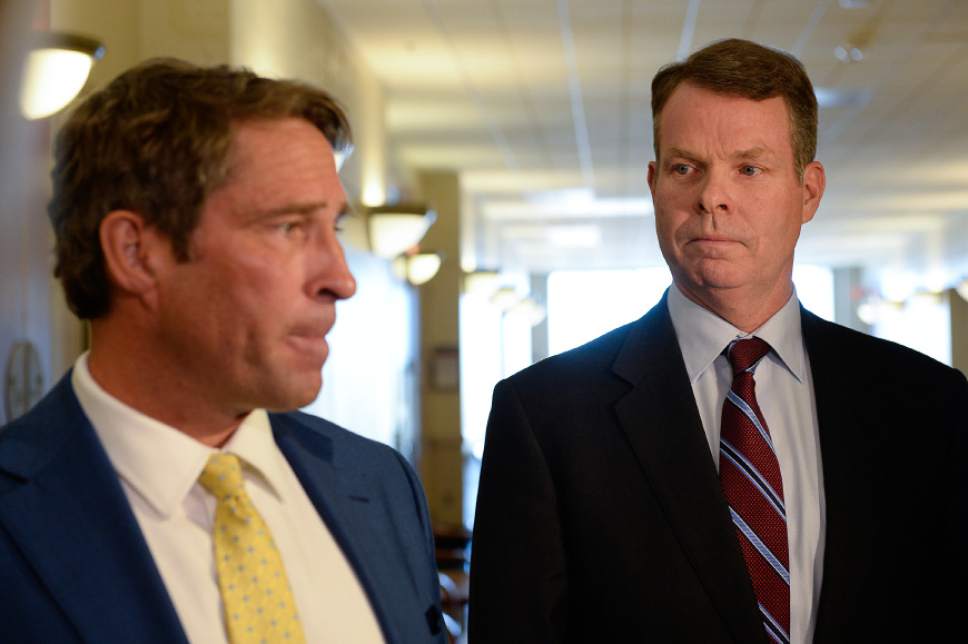This is an archived article that was published on sltrib.com in 2016, and information in the article may be outdated. It is provided only for personal research purposes and may not be reprinted.
John Swallow "lacks sufficient information" about a St. George businessman's political contributions in 2009 and 2010 and, therefore, denies the allegations of election fraud that have left the former Utah attorney general a co-defendant in a civil lawsuit.
"Defendant denies he ever instructed, directed or told [Jeremy] Johnson to make contributions by giving money to others for them to contribute in their own names to any campaign," Swallow's attorney, Scott C. Williams, wrote in documents filed Monday in federal court.
The U.S. District Court filing demands a jury trial and claims the Federal Election Commission's "unjustified allegations" violate Swallow's "fundamental constitutional speech rights inherent in political fundraising and the type of speech incidental to fundraising activities."
The FEC accuses Swallow and Johnson of a scheme to employ straw donors to fill the campaign coffers of candidates for U.S. Senate, including Nevada's Harry Reid, Utah's Mike Lee and former Utah Attorney General Mark Shurtleff.
The FEC brought suit against Johnson in 2015. Swallow was named a co-defendant in the case earlier this year, with the agency claiming he had directed or coordinated Johnson's efforts in violation of the Federal Election Campaign Act.
The FEC contends Johnson — at Swallow's direction — funneled about $170,000 in illegal contributions to campaigns during the 2009-2010 election cycle. Under FEC rules, individual contributions were capped at $2,400.
The FEC complaint ties Swallow to $50,000 in donations to the Lee campaign.
In court papers, Swallow denies all of the FEC's 77 allegations, saying the onetime Republican officerholder either "lacks sufficient information" to answer or "form a belief" about the allegations raised about Johnson "and on that basis denies the same."
Swallow acknowledges only being a former state attorney general and to interacting with Johnson while Swallow was serving as a volunteer fundraiser for Shurtleff and Lee, and that he once notified Johnson that some checks given to the campaigns had bounced, court papers say.
In some instances, the filing states simply that "no response is required" to some conclusions of law asserted by the FEC complaint. The filing also asserts the FEC failed to exhaust its own administrative procedures designed to resolve such matters without resorting to civil lawsuits.
Johnson, who has been convicted of federal criminal charges related to his online marketing business operations, also has denied any allegations of wrongdoing. He contends the FEC's complaint is based on "illegally obtained and inadmissible evidence" that was subject to "promises of immunity and confidentiality," because he was assisting federal agents in the investigation that brought state criminal charges against Shurtleff and Swallow.
Both former attorneys general have pleaded not guilty to felony and misdemeanor counts stemming from public corruption allegations.





